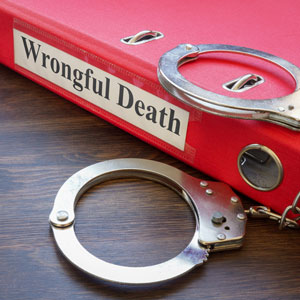
When a loved one is tragically taken from us due to a reckless driver or a negligent accident, no amount of compensation can fill that loss. However, the law does allow families to seek wrongful death compensation from those responsible. This article provides the answers that every family in Des Moines, Iowa, needs when it comes to wrongful death claims:
- What is a wrongful death claim, and when can one be made in Iowa?
- How is fault relevant and proven in wrongful death claims?
- The biggest challenge in wrongful death claims, and how a lawyer can help you overcome it.
Legally Speaking, What Is A Wrongful Death Claim?
A wrongful death claim is a legal action brought against someone whose negligence or recklessness has caused the death of a loved one. In Iowa, this claim is typically filed by the estate of the deceased person on behalf of their family.
The claim seeks compensation for several types of losses:
Economic Loss
The estate calculates the financial loss resulting from the deceased’s untimely death. This includes the income and wealth the person could have earned over their lifetime based on their job, age, and life expectancy.
Pain & Suffering
If your loved one suffered before passing away, you can claim compensation for their pain and mental anguish, as well as any medical expenses incurred during their treatment.
Funeral Expenses
Costs associated with your loved one’s funeral and burial can also be recovered through the wrongful death claim.
Loss Of Consortium
In addition to the wrongful death claim, surviving relatives—such as a spouse or children—can file a loss of consortium claim. This seeks compensation for the emotional and personal loss of companionship, guidance, and support that your loved one provided.
By pursuing a wrongful death claim, families can seek financial justice for their devastating loss while holding the responsible party accountable for their actions.
What Are The Most Common Causes Of Wrongful Death In Iowa?
While we have handled a wide variety of wrongful death claims, the most common causes of wrongful death suits are vehicle accidents and nursing home neglect and abuse cases.
Who Can File A Wrongful Death Claim In Iowa?
A wrongful death claim is not filed directly by a surviving relative but by the estate of the deceased. An administrator will be appointed to the estate, and then that person will have the authority to file a wrongful death claim on behalf of the estate. However, in many cases, the executor will be a surviving spouse or a close relative.
If you also have a loss of consortium claim—seeking compensation for the personal loss of companionship and support—you can include that as part of the wrongful death claim.
The compensation awarded to the estate is then distributed to the deceased’s beneficiaries according to their will. In contrast, any compensation from a consortium claim is given directly to the surviving spouse who filed it.
How Is Fault Typically Proven In A Wrongful Death Claim?
A wrongful death claim is proven the same way as you would prove a serious injury claim, with one major exception: you do not have the testimony of the person who actually suffered the injury. This means that you’ll need to rely more heavily on other forms of evidence, such as reports from the scene, police records, and medical expert testimony, to piece together what happened.
You’ll need to demonstrate that the defendant’s actions caused the fatal injury and that your loved one was not responsible for their own death. So, the evidence you will need might include witness statements, video footage, 911 call recordings, and other indirect sources that help show the defendant’s negligence.
While not having the testimony of your loved one can make things more challenging, serious cases such as these often have plenty of witnesses and evidence available. With the help of a skilled attorney, this evidence can be used to build a strong case and prove your claim.
Despite The Challenges, We’re Here To Support You
The biggest challenge in proving a wrongful death claim is the need to place a value on someone’s life. In many ways, this very task is absurd – the life of someone you love is priceless, and no amount of money can ever fill the void they leave behind.
Of course, juries and judges face the difficult responsibility of determining this value, and there’s no clear “right” or “wrong” answer. However, the law requires a number, because financial compensation is the only remedy it can provide, so it is our job as attorneys to convince the court of the appropriate value of your loved one’s life.
This is why our firm approaches every wrongful death claim with the utmost seriousness and respect. We are here to help you tell your story in a way that honors your loved one, guide you through the legal process, and work toward an outcome that supports your path to healing.
If you have recently lost a loved one, let us help you seek justice and compensation for their loss.
For more information on Wrongful Death Claims In Des Moines, Iowa, a free initial consultation is your next best step. Get the information and legal answers you are seeking by calling (515) 205-1922 today.
